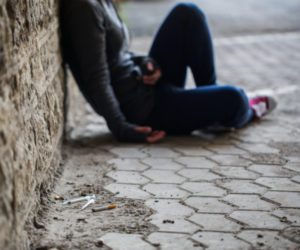Teen Drug Abuse and Addiction

Learn about the consequences and treatments for teen drug abuse
If you are a parent or guardian of teenagers, the thought of teenage drug abuse and addiction has probably crossed your mind. Teen drug abuse and experimentation in this age group continues to grow and many parents have asked the question, “Is my teen using drugs?”
Teenagers gravitate towards drugs for a variety of reasons. These can range from peer pressure, online/media influence, a desire to fit in, a way to escape pressures in the home or school, or as an attempt to have a “good time” when out with friends. What most teens are not aware of is how easily addiction occurs, the damage that is being done to their mind and body, and how fatal consequences happen every day.
The popular DoSomething global movement campaign estimates the following when it comes to teenage drug abuse problems:
- 60 percent of teenagers who abuse prescription drugs get them free from relatives and friends.
- A 2013 survey shows more seniors in high school used marijuana more regularly than smoking cigarettes.
- More teenagers will pass away from prescription drugs than cocaine/heroin combined.
- By the 8th grade, 28 percent of adolescents have tried alcohol, over 16 percent have used marijuana, and 15 percent have used cigarettes.
- Approximately 40 percent of seniors in high school do not believe it is harmful to use heroin once or twice, and 50 percent do not think it is harmful to use cocaine one or twice.
- Teenagers who are continually warned about the dangers of teenage drug abuse problems are almost 50 percent less like to try them than teenagers who don’t know hear about the dangers.
As seen in the above statistics, in addition to heeding the advice of addiction experts, one of the strongest forces in preventing teen drug use and addiction is having an open line of communication. Parents are advised to speak openly about drugs, alcohol, peer pressure, consequences, etc. Many teens are unaware of the physical ramifications of drug use, especially the brain. This organ continues to grow until the early twenties, and both alcohol and drug use can alter the way the brain functions. Marijuana and the teenage brain have been widely researched and the drug is known for affecting short-term memory, and having an impact on I.Q. and concentration. Other drugs such as synthetic marijuana and bath salts can cause manic and psychotic incidences, leaving the teenager with little to no memory of the events while using these drugs. Users of these types of drugs are said to become particularly violent, barbaric, and have intense hallucinations.
Teenage drug abuse problems can cause additional physical effects to the body such as heart problems, blood pressure changes, cancer, potential for stroke, etc. In order to combat teen drug abuse and addiction, prevention through communication is key among parents/guardians and adolescents/teens. If drug abuse occurs even when it has been openly discussed, the next option should be teenage drug addiction treatment.
Teen drug rehabilitation centers offer a variety of specialized programs for teenagers dealing with drug abuse and addiction. These facilities typically use customized treatment plans, along with counseling and therapy sessions, alternative therapies, physical activity, nutrition, group counseling and support meetings and more. There are also unique programs that are gender specific, so there are no distractions while going through treatment.
Many programs involve family counseling and education, and a variety of aftercare support services when rehabilitation is finally complete. When researching potential teenager drug addiction treatment centers, ask about inpatient and outpatient programs. These range from more intensive, residential programs to off site programs that allow the teen to continue attending school and/or work. Some facilities also offer sober-living communities for those 18 and up.
If you have been asking, “Is my teen using drugs?” or you believe you have a teenage drug abuse problem on your hands, reach out to the staff at WhiteSands Treatment today. Here you can learn more about teenage drug rehabilitation and how you can help get your son or daughter on the road to recovery. We have helped many families overcome teenage drug addiction and can help you too.
If you or a loved one needs help with abuse and/or treatment, please call the WhiteSands Treatment at (877) 855-3470. Our addiction specialists can assess your recovery needs and help you get the addiction treatment that provides the best chance for your long-term recovery.
